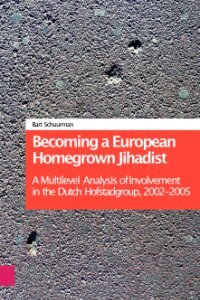By Giorgos Charalambous
Is today’s left really new? How has the European radical left evolved? Giorgos Charalambous answers these questions by looking at three moments of rapid political change - the late 1960s to late 1970s; the turn of the millennium; and post-2008. He challenges the conventional understanding of a 'new left', drawing out continuities with earlier movements and parties. Charalambous examines the 'Long '68', symbolised by the May uprisings in France, which saw the rise of new left forces and the widespread criticism by younger radical activists of traditional communist and socialist parties. He puts this side by side with the turn of the millennium when the Global Justice Movement rose to prominence and changed the face of the international left, and also the period after the financial crash of 2008 and the rise of anti-austerity politics which initiated the most recent wave of new left parties such as Podemos in Spain and Syriza in Greece. With a unique 'two-level' perspective, Charalambous approaches the left through both social movements and party politics, looking at identities, rhetoric and organisation, and bringing a fresh new approach to radical history, as well as assessing challenges for both activists and scholars.
London: Pluto Press, 2022. 369p.






